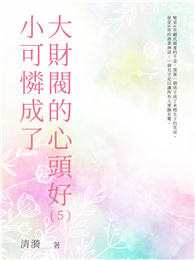Political elites have been called "the core of modern government." During the course of the past century, politicians and bureaucrats have assumed a commanding role in the functioning of modern societies, especially in Europe and North America. Two groups of elites have emerged as particularly important--the civil servants who manage the national bureaucracy and the party leaders who control the national legislative process. There is no question that the attitudes and behaviors of these two groups and their relationships with each other determine, in large part, the way a political system solves its problems, the direction of public policy, and the degree of public support for government. Elite Images of Dutch Politics is part of an international research project that was designed to explore attitudes of elites and their mutual relationships. Included were the United States and six European countries. Through interviews with forty-four Dutch members of Parliament and seventy-six higher civil servants, the authors have explored the social origins, values, and career patterns of these members of the political leadership, as well as elite perceptions of the interrelationships and roles of elites, of political problems, and of the Dutch political system. The result is a study that tells much about the norms, practices, and values--in short, the political culture--of Dutch society.
| FindBook |
有 1 項符合
Elite Images of Dutch Politics: Accommodation and Conflict的圖書 |
 |
Elite Images of Dutch Politics: Accommodation and Conflict 作者:Eldersveld 出版社:University of Michigan Press 出版日期:1981-01-01 語言:英文 規格:平裝 / 280頁 / 22.86 x 15.24 x 1.63 cm / 普通級/ 初版 |
| 圖書館借閱 |
| 國家圖書館 | 全國圖書書目資訊網 | 國立公共資訊圖書館 | 電子書服務平台 | MetaCat 跨館整合查詢 |
| 臺北市立圖書館 | 新北市立圖書館 | 基隆市公共圖書館 | 桃園市立圖書館 | 新竹縣公共圖書館 |
| 苗栗縣立圖書館 | 臺中市立圖書館 | 彰化縣公共圖書館 | 南投縣文化局 | 雲林縣公共圖書館 |
| 嘉義縣圖書館 | 臺南市立圖書館 | 高雄市立圖書館 | 屏東縣公共圖書館 | 宜蘭縣公共圖書館 |
| 花蓮縣文化局 | 臺東縣文化處 |
|
|
圖書介紹 - 資料來源:博客來 評分:
圖書名稱:Elite Images of Dutch Politics: Accommodation and Conflict
|





![塔木德:猶太人的致富聖經[修訂版]:1000多年來帶領猶太人快速累積財富的神祕經典 塔木德:猶太人的致富聖經[修訂版]:1000多年來帶領猶太人快速累積財富的神祕經典](https://media.taaze.tw/showLargeImage.html?sc=11100697818)





